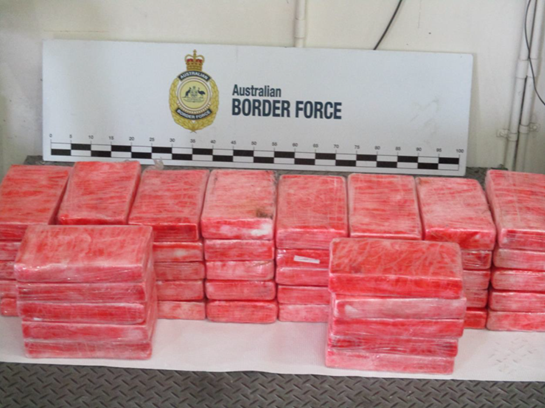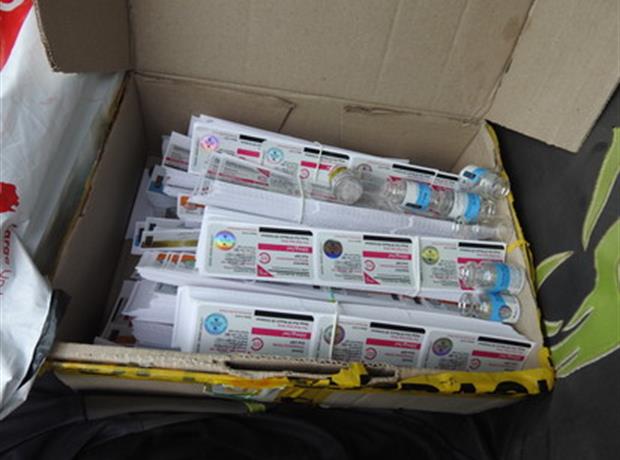Air Freight & Postal Specialists
3hr - Intl Postal Clearance
4hr - Air Freight Clearance
It's Simple - Just submit online in 5mins, then we do the rest.
Lowest Price Guarantee
As a specialist brokerage our pricing is highly competitive, but rest
assured if you find a cheaper comparative quote - We’ll beat it by 10%
step 1 - Select your import method

For goods valued over AUD
1,000 that have been sent
via the origin country’s
postal system (e.g. USPS).
If you have one of these
consignments you will have
received a 13-digit tracking
number from the sender
and/or a customs letter in
the mail.
Where goods have been
consigned from the origin
either directly with the
airlines or via a freight
forwarder at the origin.
If you have a direct air
freight consignment you will
have received an Air Waybill
from either your supplier or
freight forwarder.
For FedEx shipments that
contain “personal effects”,
which are goods that you’ve
owned and used overseas
for a period of 12mths or
more prior to your arrival in
Australia.
If you have one of these,
FedEx will have notified you
to contact an external broker
to clear your goods.
Why use e-Customs Broker Perth?
Personal Importer Google Reviews

Trusted by Corporations
Importing into Perth - A Customs Agent's Perspective
As a nationally licensed customs brokerage, we do exactly the same in-house electronic clearance processing regardless of whether the cargo destination is Perth (PER), Adelaide (ADL), Newcastle (NCL) or any other Australian city for that matter.
The difference we find in client locations is in regards to the processes that occur outside of our sphere of control, like airport staff that you may need to deal with upon cargo collection, or customs/quarantine (and about a dozen other government departments) that we as your customs brokers liaise with on your behalf.
If you live in Perth then you’re already a step ahead of most other Australian locations, with the close exception of Brisbane and the Gold Coast, in regards to the expedience, flexibility and just general ease of dealings with these external organisations.
We’ve found Perth based clearance operations officials are not just more helpful but typically even friendlier than the dealings we’ve had with their counterparts in say Sydney. It may be that we have just experienced a poor sampling of these larger eastern state’s officials or the hectic day to day operations of these mega bonds doesn’t allow time for the niceties anymore, but considering that we’ve been doing this for almost two decades now, and we ourselves are Sydney based, it may just be the fresh Perth air that makes all the difference.
Either way, it seems to be all positive for Perth residents in the customs and freight forwarding industry. For example, if you’ve got a consignment that you need to collect from one of the Perth airline cargo bonds (Qantas, Menzies Aviation and Dnata), and you’re a few days late due to an unforeseen customs hold on your consignment, you’ll likely find that a simple explanation of the circumstances surrounding your delay in collection will result in them waiving your storage and saving you several hundred dollars.
Try this at Sydney or Melbourne and you’ll almost certainly be read their storage policy clause relating to their lack of liability for customs instigated holds, and be forced to pay the money if you want your goods. This is simply the commercial reality that we’ve experienced over the past 15yrs of clearing cargo in Australia.
Customs Clearance and Perth Customs Brokers Explained
Air Freight: All importations, regardless of value, arriving via direct airfreight require a customs entry lodged for border security compliance and/or the collection of duties/taxes.
Australia Post: If your consignment exceeds AUD 1,000 and it's arriving via international post then you'll require a customs entry lodged for border security compliance and/or the collection of duties/taxes.
FedEx: All importations that arrive through FedEx that either contain Personal Effects or have a consignment value over AUD 1,000 require a customs clearance for border security compliance and/or the collection of duties/taxes.
In addition to the above circumstances, Customs also stops any shipments that meet ANY of the below criteria:
- Contain Alcohol or Tobacco (ANY quantity or value).
- Contain any goods of Customs Interest.
- Contain any Customs Prohibited or Restricted Imports.
Please Note: The above is only a guide. Even if your goods don't meet these criteria, Customs still maintains the right to hold and inspect any goods at their discretion.
Customs Duty is a percentage of the Customs Value (CV) of your importation. The applicable duty rate can be anywhere from 0% to 10% (product dependent), however for most goods a 5% duty rate is levied.
Customs GST is 10% of the Value of the Taxable Import (VoTI). The VoTI is calculated by the addition of three values, the Customs Value (CV) + the Duty + the freight cost (Intl Transport and Insurance or T&I).
When your importing goods worth more than AUD 1,000 then you’re required to lodge a formal import declaration (FID). Customs brokers lodge these declarations electronically for you and ensure compliance the relevant import legislation.
This covers all the government regulations of Australian Border Force (ABF or Customs), the ATO, Department of Agriculture and Water Resources (Quarantine), CITES, the Dept. of Infrastructure and any other relevant legislation that may be applicable to your goods.
An effective customs broker should save you time and usually money too, often more than you're paying them. Although it’s not mandatory to use a broker facilitate your clearance, in most cases it’s beneficial as described below.
SAVINGS: Customs brokers work to ensure you’re paying the minimum duty and/or GST permitted by law for the specific circumstances of your import. And there are many avenues available for brokers to do this.
For example, in over 83% (avg.) of cases, our postal import clients pay less to use us than if they lodged a B374 - Import Declaration (N10) – Post form themselves.
TIME: We electronically process customs clearances which is much quicker than the manual self-lodgement of an import declaration.
For example, postal consignments are cleared in under 3hrs, but customs 8-10 business days to process self-lodgement submissions.
SIMPLICITY: With a customs broker, all you do is forward them your documents and they do the rest. With e-customs broker it’s even easier because you can submit all online in less than 5mins.
Self-lodgement requires you to complete the import declaration yourself, including applying the correct classification of goods and valuation methods based on your specific import circumstances.
LIABILITY: Another benefit of using a broker is that they protect you from the risk of liability for lodging an erroneous import declaration, which can be significant - anything up to a $12,000 strict liability fine.
The bottom line is that if you’re not 100% sure that you understand the legislation and know what your declaring to customs, then you should use a customs broker.
Air Freight: Once cleared, we email you full collection instructions, then you simply proceed to collect your goods from the nominated airline bond in accordance with these instructions.
Australia Post: Upon receipt of our release emails, your consignment is “Customs Cleared” and our servers immediately notifies Customs of the release. Customs then generates a cargo release report at midnight on the day of clearance, then Australia Post is notified of the release (on the next business day) and instructed to deliver your goods.
FedEx: Upon customs entry completion, we immediately notify FedEx to dispatch your goods for delivery, which usually occurs on the following business day, providing that you’re located within FedEx’s same day delivery zones.
e-Customs Broker Perth - The Air Freight/Postal Specialists
© Copyright e-Customs Broker Pty Ltd 2021 | ABN: 49 088 615 249













































